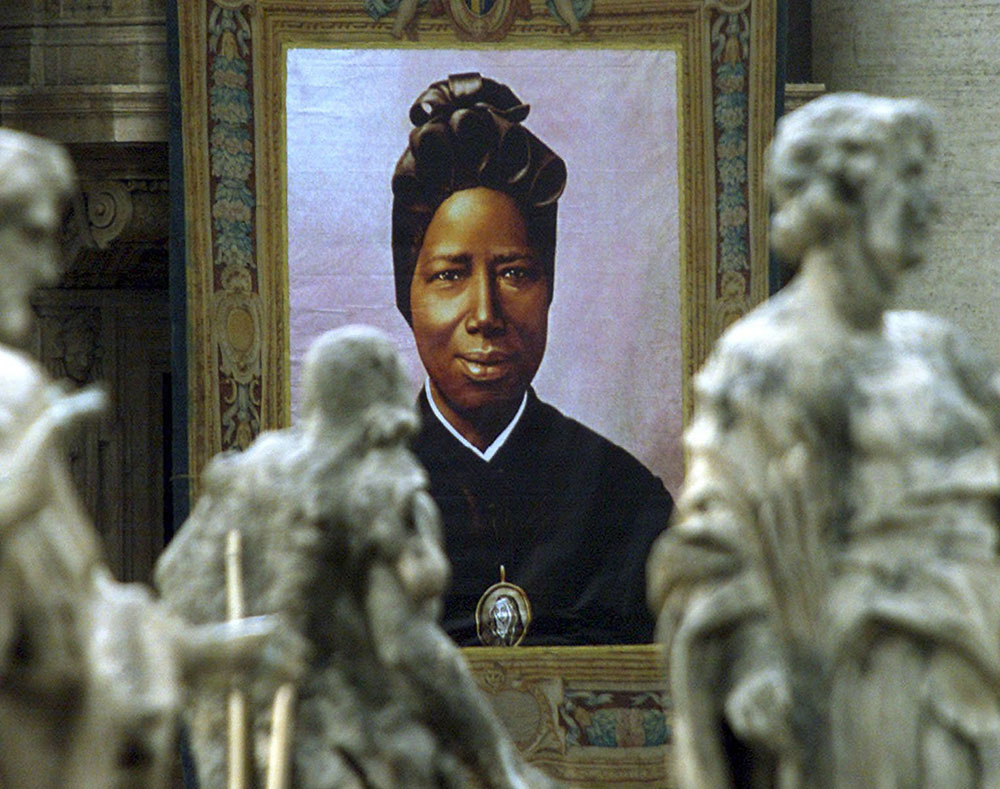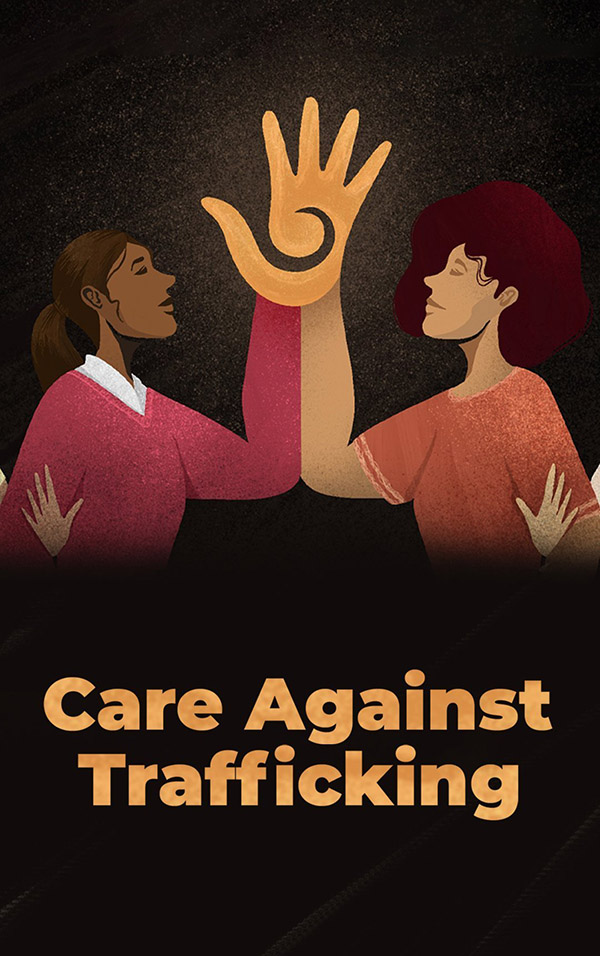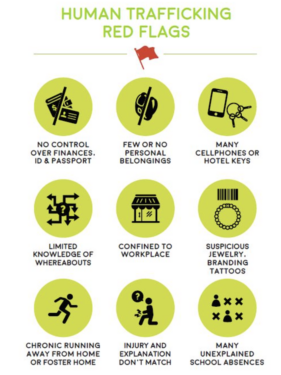
JAMAICA — About 10 years ago, Father Chris Piasta first noticed a recurring scene in the frenzied activity of people coming and going at both international airports in Queens.
Father Piasta is pastor of St. Bonaventure-St. Benedict the Moor Parish in South Jamaica. He also serves as the Catholic chaplain at John F. Kennedy and LaGuardia Airports.
While working at these transportation hubs, Father Piasta has noticed sets of women — many are Asian, while others are Latina or Eastern European.
The common trait of these groups of women is how they piled into waiting vans that sped away to destinations unknown to the priest.
Over time, he wondered if they were brought to the U.S. via pipelines of human trafficking, carrying them to futures of domestic servitude, harsh manufacturing or farm labor, or even violent sex slavery.
“I’ve seen it, I would say, dozens of times,” Father Piasta said of the departing vans.
Global attention to this crime is heightened at this time of year, as Feb. 8 is the International Day of Prayer and Awareness Against Human Trafficking. It also is the feast day of St. Josephine Bakhita, the patron saint of human trafficking survivors.
Pope Francis has called this condition “a crime against humanity” for its assaults upon a victim’s dignity with brutality — like violent sex or rape — separations from family, and even death.
Father Piasta wanted to know more, so he completed programs on how to spot human trafficking.
The Port Authority of New York and New Jersey and the International Association of Civil Aviation Chaplains offered the training; with the latter, he attended presentations in Australia and the Netherlands.

Father Piasta said signs of possible trafficking are women who appear to be under the control of handlers holding their passports or money.
Victims can also appear unusually anxious beyond the usual stress of air travel, Father Piasta said.
Still, Father Piasta can’t shake the images of women being whisked away from airport parking spots.
“And I would think, what’s the story about that?” he said. “Is it something nefarious? Was it human trafficking? I cannot tell you for sure. It definitely seemed to be of that nature.”
That’s not a stretch, considering Queens has become a hotbed of illicit activity associated with human trafficking and the illegal sex trade.
Examples are storefronts turned into massage parlors. Others are prostitution involving women — but also men and teenage girls.
In mid-January, the New York Police Department conducted an undercover operation on Roosevelt Avenue in Jackson Heights. The sweep shuttered a dozen illegal massage parlors. Father Piasta said open-air prostitution is a common sight in Queens.
Human trafficking has proliferated in the borough for reasons oft reported before: easy access to New York City via the two airports, busy roads or highways, and public transportation.
Father Piasta said that there did not seem to be much information available about human trafficking when he first noticed the van pick-ups a decade ago. Since then, however, a plethora of anti-human trafficking organizations have emerged, many created by religious sisters.
Included are the Alliance to End Human Trafficking in the U.S., and Talitha Kum, an international network of anti-trafficking religious sisters.
Based in Rome, Talitha Kum spearheaded the Feb. 8 International Day of Prayer and Awareness Against Human Trafficking.
Closer to New York City is the LifeWay Network, headquartered in Westchester County. Sister Joan Dawber (Sisters of Charity-Halifax) founded the group in 2007.
LifeWay has since grown into a provider of safe housing for human trafficking survivors in the New York City area.
It also works to educate the public on modern day slavery. To that end, its website (lifewaynetwork.org) is a clearinghouse of data about the scourge.
According to LifeWay, human trafficking generates $150 billion annually for perpetrators who enslave an estimated 50 million people worldwide.
Trafficking occurs in all 50 states, and an estimated 200,000 minors are involved in sex trafficking each year in the U.S., LifeWay reports.
The average age of entry into sex trafficking in the U.S., according to the group, is 13.

Sister Joan said people are devastated to learn about human trafficking in their own areas. But, she noted, “the work that we do really informs people about this issue.”
“At the same time,” she said, “it is helping to eradicate human trafficking.”
Sister Joan, in a promotional video, described LifeWay’s strategy for providing healing and housing for former slaves. A typical stay in LifeWay housing lasts about a year, she said.
“During that time, we are hoping that the women become strong, connected, and free,” she said. “We do that by providing healing, modality, and workshops for them.
“The women are our best ambassadors in terms of how they go forward and how they begin to work and live as stronger women in society.”
The video shared the story of Carmen who, at age 14, was kidnapped from her home in Mexico. The abductors forced her into prostitution in the U.S. She subsequently found LifeWay.
“I would describe LifeWay as like a home,” she said. “It is not just a safe house. Every day was like a new life. At dinner, we shared what happened that day and everybody at the same time was healing.”
Carmen has since married and had a baby daughter. She settled with her family in Queens.
What You Can Do (Who to Call)
If you see possible human trafficking activity at any of the international airports in or near NYC, call Port Authority police, said Father Chris Piasta, airport chaplain.
- Those numbers are, for JFK, 718-244-4335; Newark, 973-961-6230; LaGuardia, 718-533-3900.
- Follow this link (panynj.gov/police/en/ContactUs.html) for PAPD numbers in other spots like the Lincoln and Holland Tunnels, the PATH train, and the Port Authority Bus Terminal.
- The NYPD’s Human Trafficking Hotline is 646-610-7272.
- The National Human Trafficking Hotline is 888-373-7888. The NHTH’s text line is 233 733 or BeFree. (NHTH answers calls 24 hours a day, 7 days a week, every day of the year in more than 200 languages.)
More Ways to Fight Trafficking
The Alliance to End Human Trafficking (AEHT) suggests these steps:
- Contact your governor to request that the NHTH hotline, 888-373-7888, is featured prominently on all state websites and in all state-run restrooms on interstate highways.
- Work to create awareness campaigns about human trafficking, and encourage grassroots efforts to educate people on how to recognize it, how to report it, and where survivors can get help.
- Work with legal experts and advocacy groups to advocate anti-trafficking laws.
- Donate money to support AEHT (alliancetoendhumantrafficking.org/) and other groups like Talitha Kum International (talithakum.info/en/).

Another detailed article by reporter Bill Miller. How sad is it that human trafficking is taking place in front of our eyes and we’re helpless to stop it. Thanks for all the information to assist us in helping others.